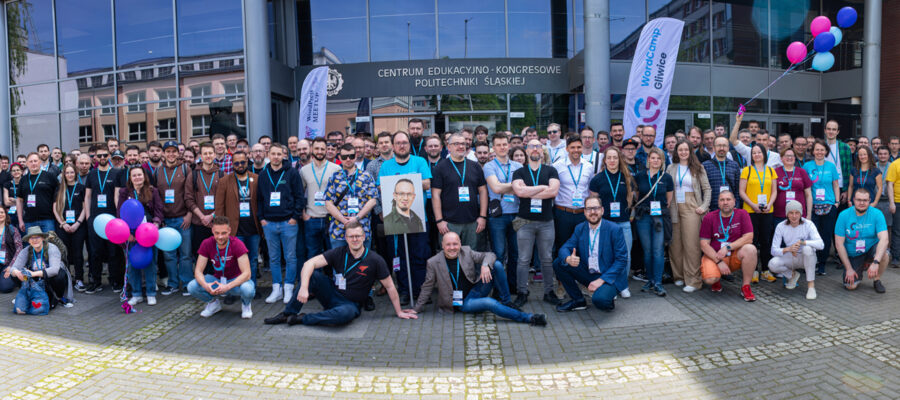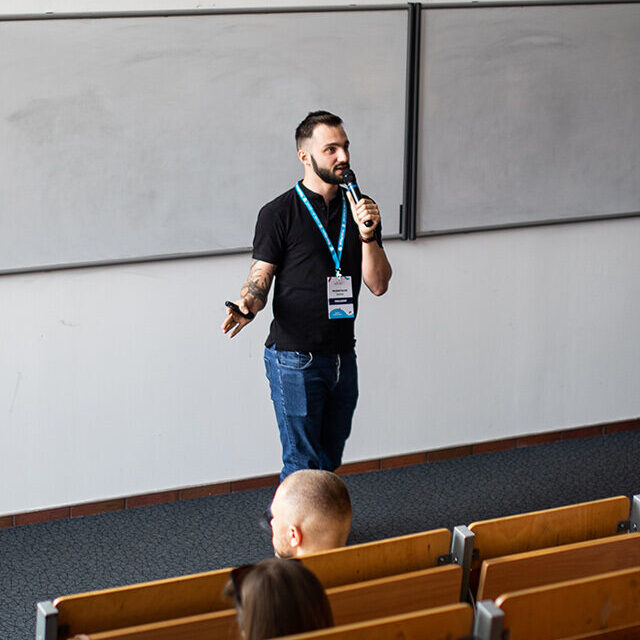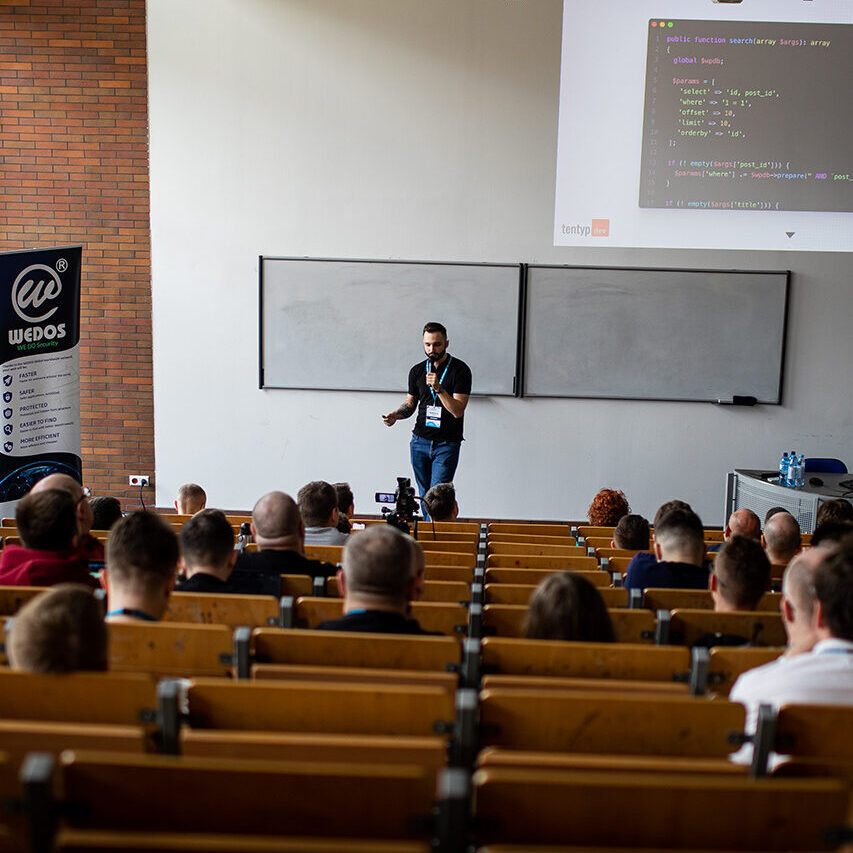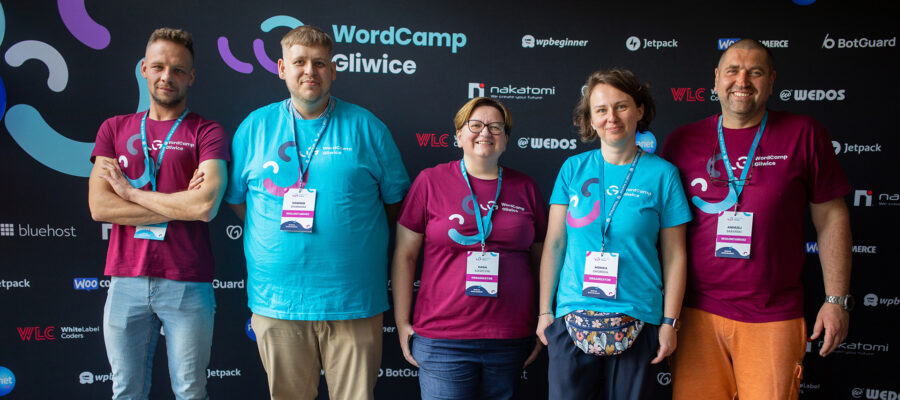
Three weeks have passed since WordCamp Gliwice, yet the excitement and buzz of the event still linger as if it were yesterday. And we still want to share some reflections and takeaways from the conference. It was, without a doubt, an exceptional experience 😍
Why we decided to be there?
WordCamps are must-have events for anyone deeply involved with WordPress, and this year was no exception. Held over two days in Gliwice – which, is just near our hometown – the conference offered a lot of enjoyment for us. We took a chance to engage with others about the WordPress ecosystem, discussing business challenges, and innovative solutions, and sharing success stories. These interactions are a fantastic way to learn and a wonderful opportunity to connect with fellow WordPress friends 👋
What was discussed there?
This year, WordCamp Gliwice featured a diverse agenda that reflected the community’s openness to a wide range of topics, ensuring there was something of interest for all.
The sessions covered some hot technical issues, like a discussion on the new features for developers in WordPress 6.5 by Marcin Pietrzak, as well as essential SEO insights, including Tomasz Kołkiewicz’s session debunking myths about duplicated content. There were also discussions on softer skills, such as Szymon Kryczka’s strategies for improving project communication. Our team presented a case study about how we simplified SQL queries in one of our large-scale projects, sharing practical insights.
All the speeches are available in the official YouTube playlist so if you didn’t have a chance to be there, just check them out. We’re sure you’ll find something useful 😈


What is the most important conclusion?
We gained more than just refreshed knowledge: we explored the future trajectory of WordPress there. As a software house, we’ve noticed some concerns with the platform’s current direction, particularly the development of Gutenberg as a no-code tool. WordPress no-code solutions work well for beginners and people without much technical skill. However, for larger and more complex projects, they might not be as flexible or easy to customize. Similar concerns were shared among the technical community.
Our participation in WordCamp has somewhat alleviated our concerns. It’s clear that even as WordPress leans towards no-code, it continues to generate complex problems needing sophisticated solutions. This evolution ensures that there will always be demand for our expertise in handling more demanding business challenges which have been in our DNA for a long time, and what we want to do as a Software House! 💪
Networking is still a key!
Networking was an important part of this year’s WordCamp. A significant portion of the agenda emphasized this aspect, particularly on the second day when most activities focused on discussions and the sharing of development and business experiences.
For the first time, we participated in a mastermind session, which allowed to exchange questions and insights on various topics in a group. This provided an opportunity to go deeper into challenges and opportunities within the WordPress community 🌏
Summary
We want to thank all the organizers – Kasia, Monika, Maciek, Piotr – and all the volunteers, speakers, and participants of WordCamp Gliwice. Organizing such an event is for sure hard, and we are grateful for everyone’s dedication and hard work. Well done, everyone! ❤️
For those curious about experiencing WordCamp firsthand, we insist you consider the upcoming edition in Krakow this June. Keep an eye on the event page for more details. As for our team, we’ll be heading to Turin for WordCamp Europe just a week later so stay tuned, we’ll share our insights too. We’re excited about this next adventure and hope to see some of you there!
